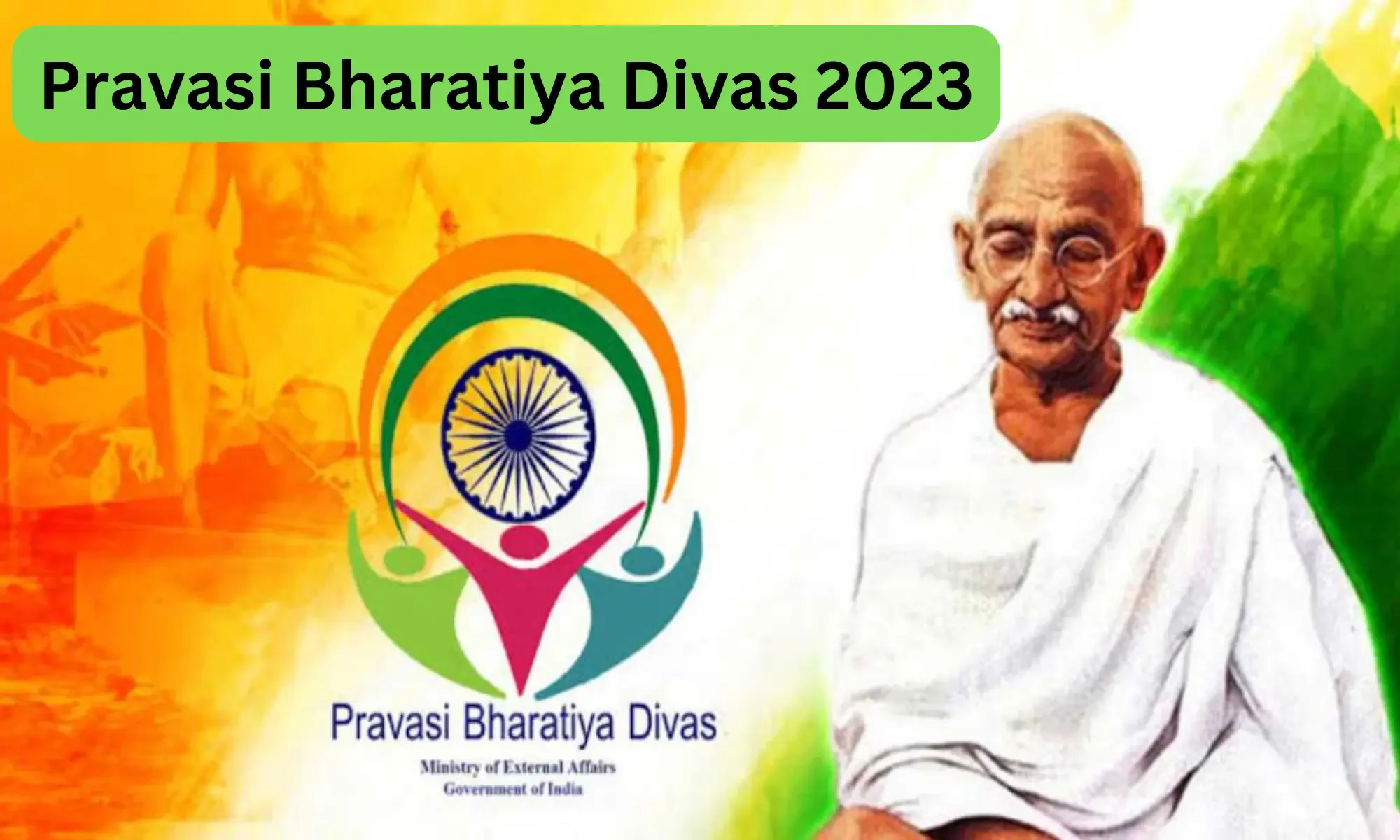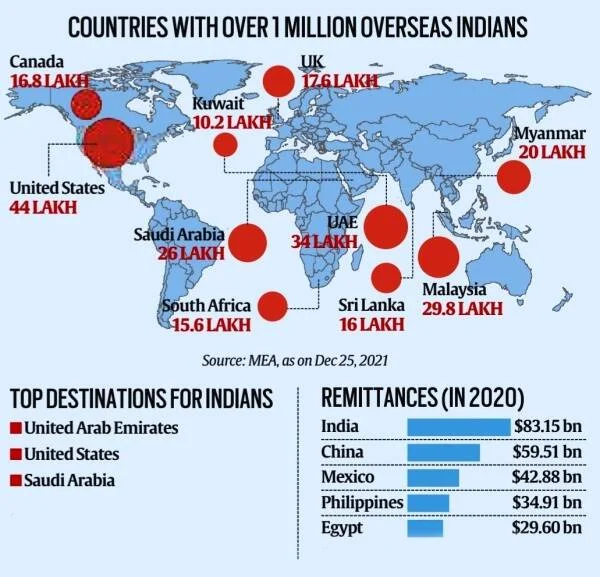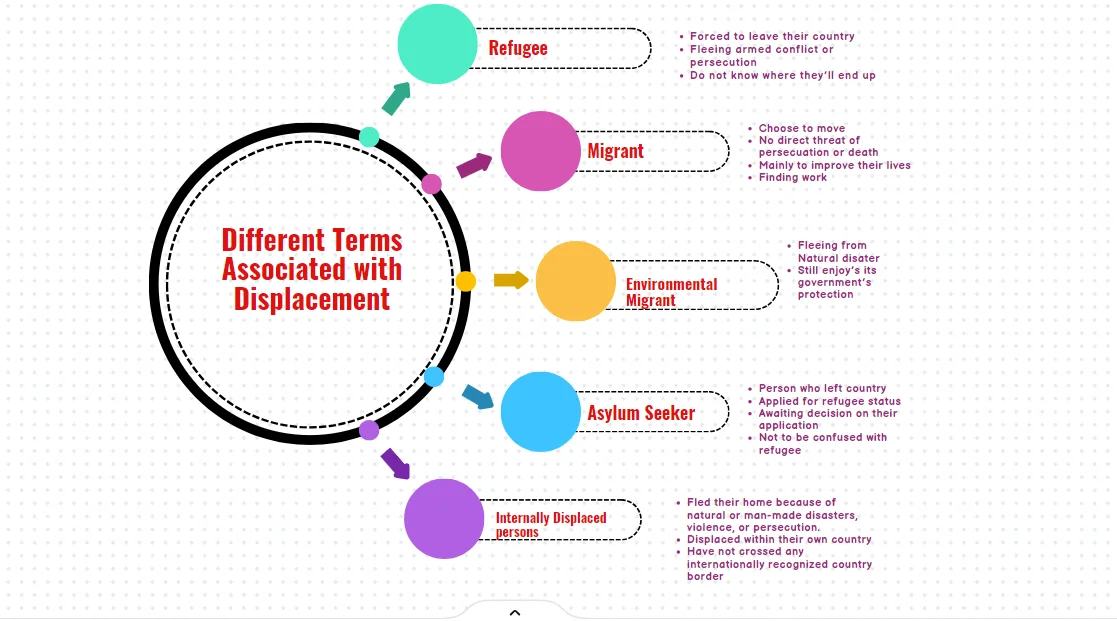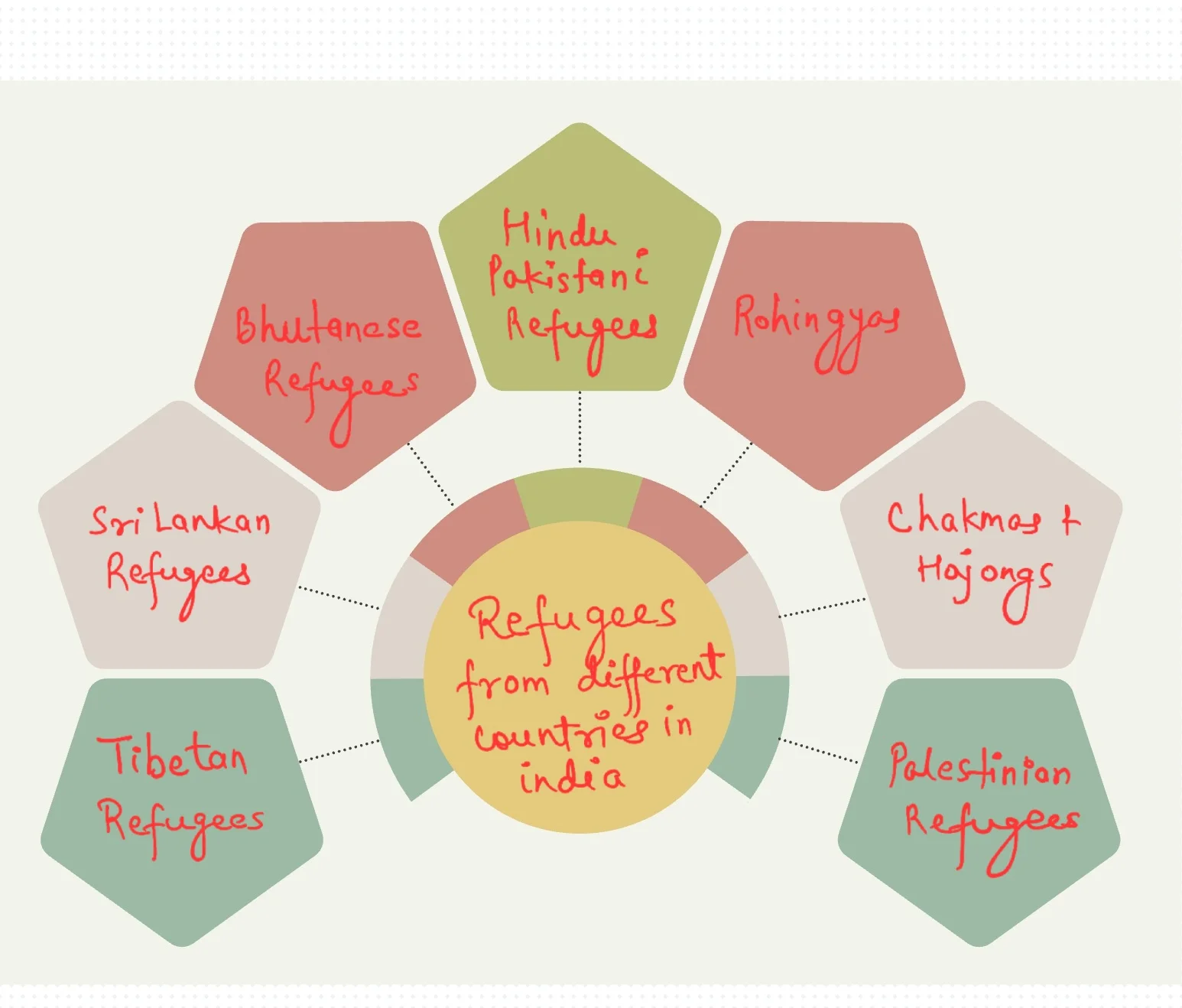The Indian government has taken significant steps to support its global diaspora, including the establishment of Pravasi Bhartiya Divas and the Ministry of Overseas Indian Affairs. These efforts aim to foster strong connections between India and its overseas community, promoting mutual growth and collaboration. Additionally, India’s approach to refugee status and asylum policies reflects its ongoing commitment to humanitarian concerns and international relations.
Steps Taken By Government For The Benefit Of Indian Diaspora
Pravasi Bharatiya Divas (PBD) Celebrations and Contributions

- Date and Significance: Pravasi Bhartiya Divas (PBD) is commemorated on the 9th of January annually to recognize the substantial contributions of the Overseas Indian community to India’s development.
- The selection of January 9 for this celebration holds special significance, as it marks the day in 1915 when Mahatma Gandhi, a prominent Pravasi, returned to India from South Africa.
- Evolution of PBD Conventions: PBD conventions have been a recurring event since 2003.
- However, since 2015, the format has evolved to celebrate PBD once every two years.
- Theme-Based Conferences: In the intervening years, theme-based PBD Conferences are held, featuring active participation from overseas diaspora experts, policy makers, and stakeholders.
- Platform for Interaction and Development: These gatherings serve as a vital platform for the overseas Indian community to interact with the government and the people of their ancestral homeland, fostering mutually beneficial activities.
- Pravasi Bharatiya Samman Award: Notably, the Pravasi Bharatiya Samman Award is presented during the event to individuals of exceptional merit.
- This prestigious accolade recognizes their pivotal roles in India’s progress and development.
- Forum for Diaspora Issues: PBD also serves as a forum for the discussion of significant issues related to the Indian Diaspora, allowing for the exchange of valuable insights and perspectives.
Enroll now for UPSC Online Course

Ministry of Overseas Indian Affairs
- Establishment and Renaming of MOIA: The Ministry of Overseas Indian Affairs (MOIA), initially established in May 2004 under the name Ministry of Non-Resident Indians’ Affairs, was later renamed MOIA in September 2004.
- Primary Mission and Focus: Its primary mission was to foster connections between the Indian Diaspora community and their homeland, with a focus on development through global collaborations.
- Roles and Responsibilities: As a Services’ Ministry, MOIA provided information, partnerships, and support for matters concerning Overseas Indians, including Persons of Indian Origin (PIOs) and Non-Resident Indians (NRIs).
- Additional Initiatives: In addition to its core responsibilities, the Ministry also undertook various initiatives related to trade, investment, emigration, education, culture, health, and science & technology.
- Merger with the Ministry of External Affairs: However, in 2016, MOIA was merged with the Ministry of External Affairs (MEA) as most of its functions were already carried out by MEA.
- This merger led to the establishment of a division within MEA, which currently handles the functions previously managed by MOIA.

Refugee Status in India
Non-Ratification of International Refugee Conventions: India has refrained from ratifying the 1951 United Nations Refugee Convention or its 1967 Protocol concerning the Status of Refugees.
- Improvisational Approach to Refugee Management: This absence of specific refugee legislation has resulted in an improvisational approach by the government to handle diverse refugee inflows.
- Dependence on Political and Administrative Decisions: The status of refugees in India primarily hinges on political and administrative decisions rather than a standardized set of regulations.
- Varied Treatment of Refugee Groups: The government’s ad hoc methods have led to varied treatment of distinct refugee groups.
- While some groups receive a comprehensive array of benefits, including legal residency and authorization for gainful employment, others face criminalization and are deprived of essential social resources.
Refugee vs. Asylum Seeker: Understanding the Distinction
Understanding Asylum
- Application for Asylum: When individuals flee their homeland in search of sanctuary in another nation, they typically apply for asylum.
- Rights Granted by Asylum: Asylum grants them the right to be recognized as refugees, providing them with legal protection and necessary assistance.
- Eligibility Criteria for Asylum: To be eligible for asylum, an individual must demonstrate that their fear of persecution in their home country is well-founded.
- Distinction Between Asylum Seeker and Refugee: Consequently, a refugee is essentially an asylum seeker whose application for asylum has been approved.
India’s Refugee Accommodations
- Need for a Uniform Asylum Policy: India, as one of the countries with one of the largest refugee populations in South Asia, has historically been accommodating to refugees.
- However, India currently lacks a uniform asylum policy.
- Reasons for Adopting a Uniform Asylum Policy in India: In the contemporary world, the need for a uniform asylum policy in India is increasingly evident due to several compelling reasons:
- Case-by-Case Basis: The absence of a uniform policy necessitates that the government assesses asylum requests on a case-by-case basis.
- This process is time-consuming and lengthy.
- Global Leadership Aspirations: India aspires to have a permanent seat in the United Nations Security Council (UNSC) and seek membership in groups like the Nuclear Suppliers Group (NSG).
- To establish itself as a global leader, having a well-defined refugee policy is essential to enhance its international goodwill.
- Strategic Advantages: A well-crafted asylum policy can aid India in dealing with issues like the Balochistan conflict.
- It would garner support from leaders advocating for humanitarian causes and enhance India’s strategic stance.
- UN Peacekeeping Efforts: India is a significant contributor of troops to UN Peacekeeping missions.
- Implementing an asylum policy would complement these contributions and align with India’s international commitments.
- Case-by-Case Basis: The absence of a uniform policy necessitates that the government assesses asylum requests on a case-by-case basis.

- Challenges in Adopting a Uniform Asylum Policy: However, the adoption of a uniform asylum policy also poses certain challenges:
- Porosity of Borders: South Asian borders are highly porous, and conflicts can lead to mass migrations, straining local infrastructure, resources, and upsetting demographic balances.
- Restrictions on Repatriation: A formal asylum policy may restrict India from repatriating refugees against their will, which can be essential to address political crises.
- Unintended Consequences: Providing shelter to every refugee can inadvertently lead to issues such as human trafficking, drug trafficking, and abuse.
- This may place additional financial and administrative burdens on the state.
- Citizenship Amendment Act of 2019: The recently enacted Citizenship Amendment Act of 2019 represents a step towards developing a comprehensive asylum policy.
Enroll now for UPSC Online Course
-
- However, there is still work to be done to broaden its scope and ensure it addresses all asylum-related cases comprehensively.
| Must Read | |
| Current Affairs | Editorial Analysis |
| Upsc Notes | Upsc Blogs |
| NCERT Notes | Free Main Answer Writing |
Conclusion
While India has made strides in supporting its diaspora and addressing refugee issues, challenges remain, including the need for a uniform asylum policy.
- The Citizenship Amendment Act of 2019 marks progress, but further efforts are required to comprehensively address asylum-related matters.
- Strengthening these policies will enhance India’s global standing and its capacity to manage diverse humanitarian concerns effectively.
Sign up for the PWOnlyIAS Online Course by Physics Wallah and start your journey to IAS success today!
| Related Articles | |
| Mahatma Gandhi | CAA 2024 Rules: Citizenship Amendment Rules |
| Pravasi Bharatiya Divas 2024 | THE INDIAN DIASPORA |

 GS Foundation
GS Foundation Optional Course
Optional Course Combo Courses
Combo Courses Degree Program
Degree Program










